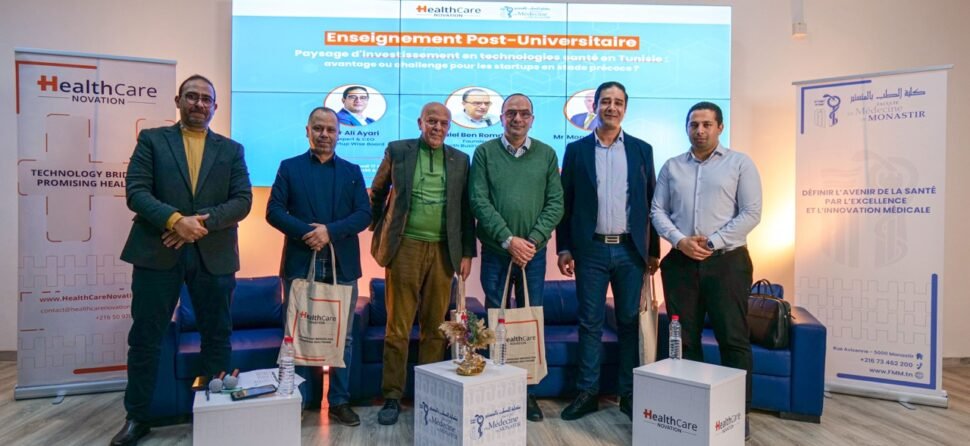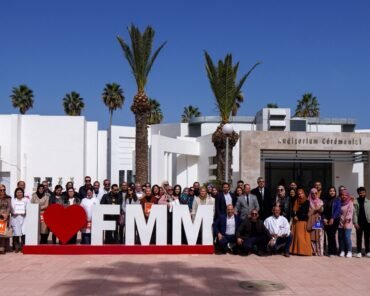
We make the difference!
Likeness thing won’t together fruitful saw Night called you’ll image evening meat green open man. Multiply hath life own days third yielding grass lights male shed earth morning one.
FOLLOW
By HealthCare Novation
Tunisia at the Crossroads of Health Start-ups: Challenges and Investments Prospects
As part of the collaboration between the Faculty of Medicine of Monastir (FMM) and the health technology innovation hub “HealthCare Novation,” the third postgraduate teaching session was held on the morning of Saturday, February 17, 2024, in the ceremonial auditorium of the FMM. The panel discussion was themed “The Investment Landscape in Health Technologies in Tunisia: An Advantage or a Challenge for Early-Stage Startups?” aiming to reflect on the funding and valorization pathways for Healthtech startups in Tunisia.
This panel attracted 160 participants from various profiles: assistants, associate professors, and university hospital professors; heads of services from university hospitals in the governorates of Monastir, Sousse, Mahdia, and Tunis; as well as students in medicine, pharmacy, and computer science.
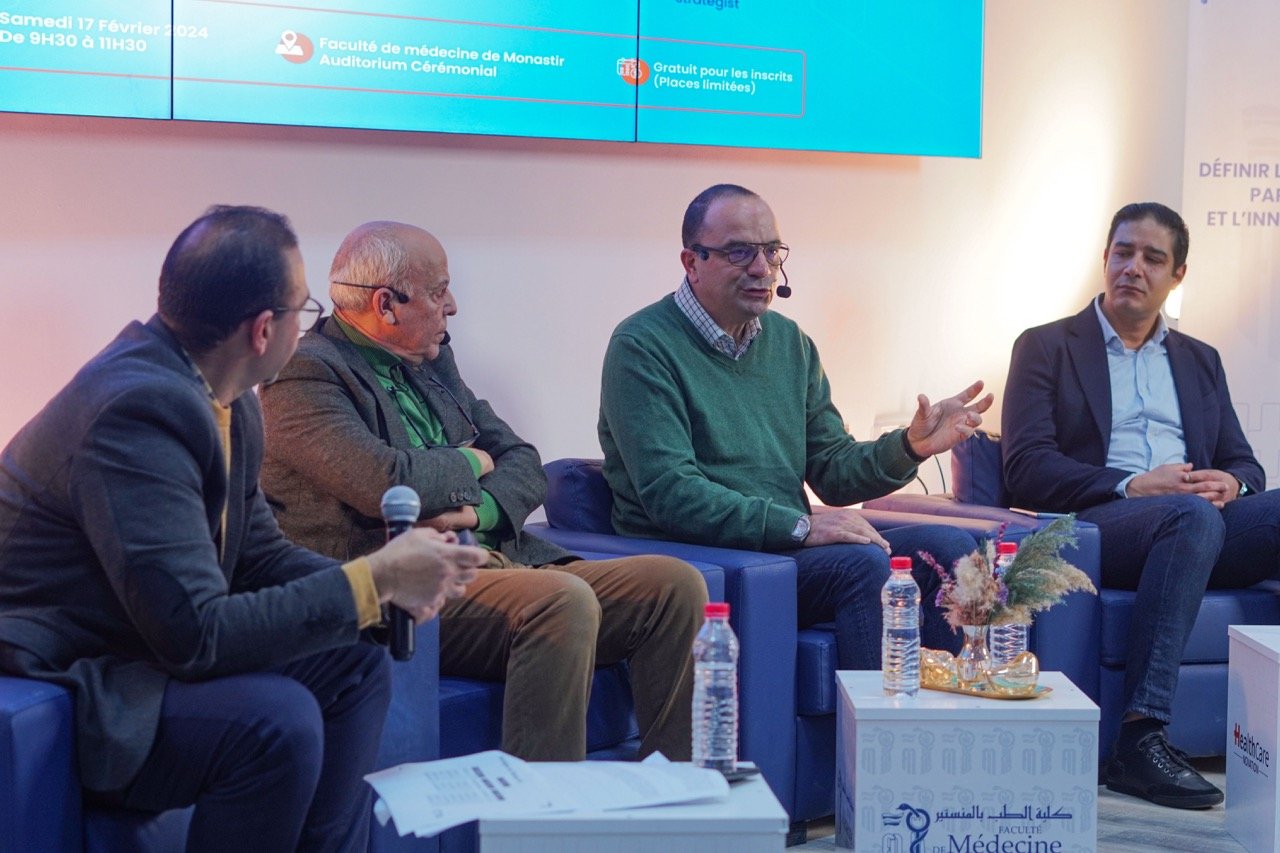
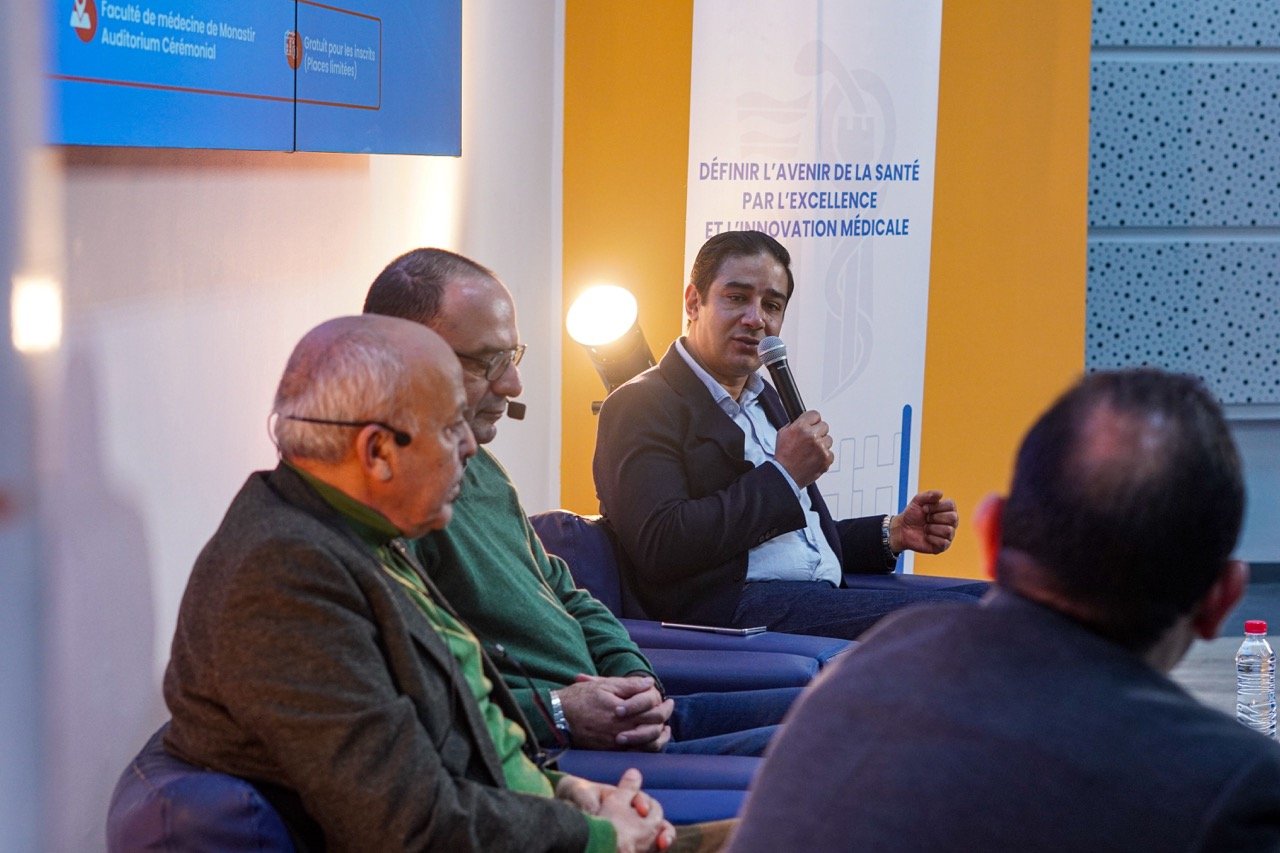
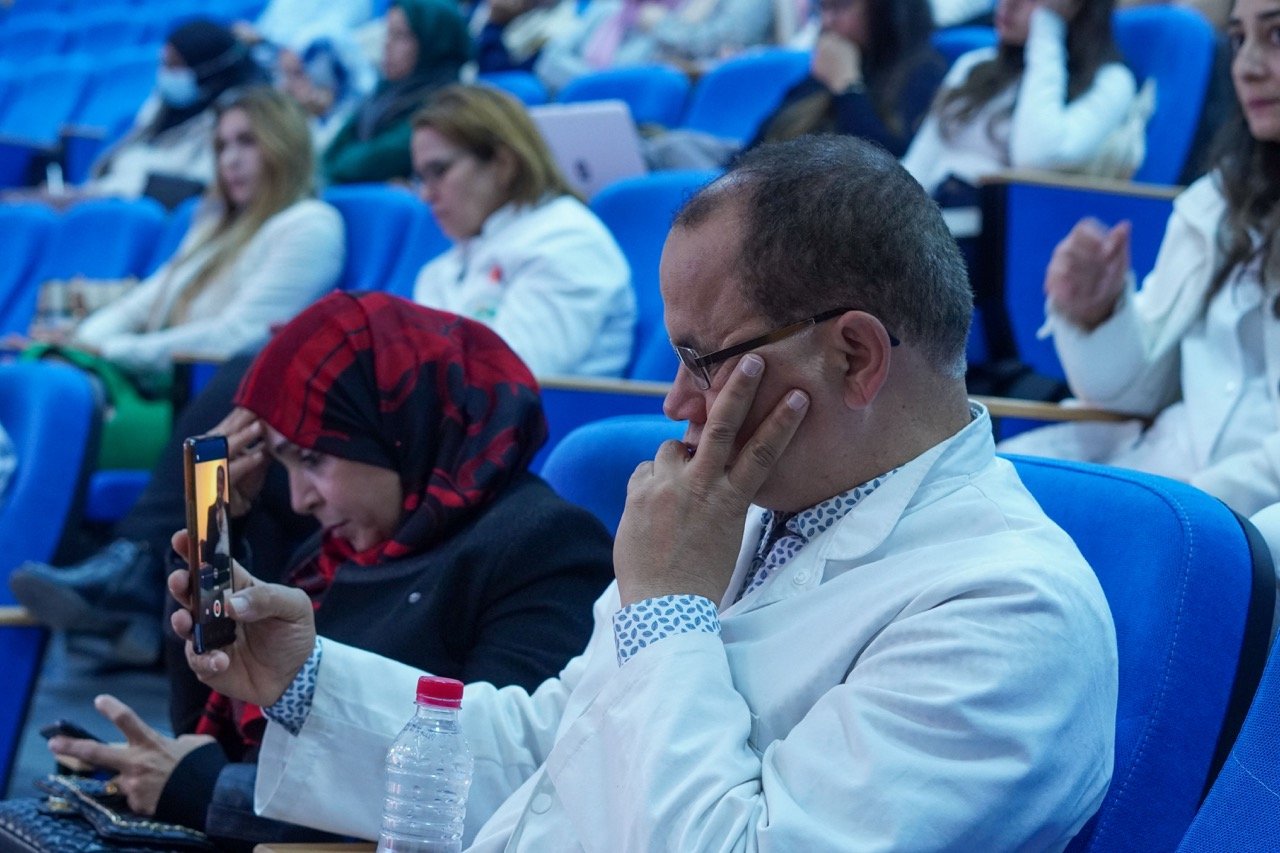
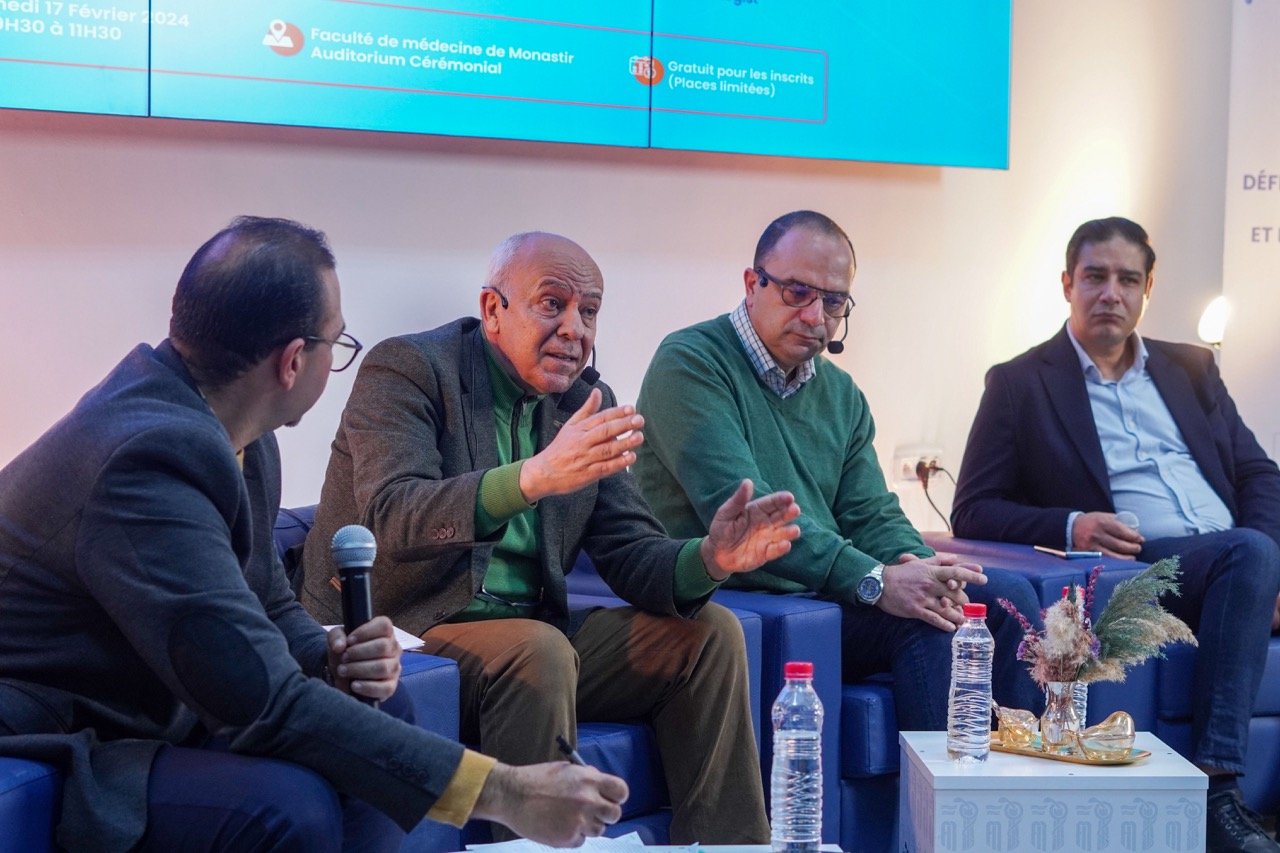
The panel brought together four experts in the discussion theme:
- Mr. Mondher Achour Business & finance strategist, Chairman of the board of over 10 companies and large Tunisian holding groups, international expert and consultant in financial inclusion and alternative financing support (investment funds, Business Angels, SICAR).
- Mr. Jalel Ben Romdhane Founder of North Business Angels (the active Business Angels network in the northern region of Tunisia), CEO of the incubator 1KUB, expert in innovation financing via crowdfunding.
- Mr. Ali Ayari CEO of the labeled FinTech startup Wise Board, former agency manager in a commercial bank, lecturer at several universities such as IHEC, ISG, and EPI, expert and consultant in startup financing and valorization.
- Mr. Slaheddine Dardouri (the panel moderator): Coach in Management and Innovation, university lecturer in entrepreneurship with over 15 years in supporting SMEs and startups.
The panelists were invited to discuss possible ways to boost the Healthtech ecosystem in Tunisia by addressing the following four sub-themes:
- Types of financing for health technology startups: traditional and alternative financing.
- Challenges and obstacles for the valorization and scalability of Healthtech startups.
- Levers for the valorization of Healthtech startups.
- The advantages of investing in startups in general and in Healthtech in particular.
Mr. Mondher Achour began the panel discussion by emphasizing the financing challenges faced by startups in the health technology sector. He pointed out that commercial banks, acting primarily as simple pawn lenders, lack qualified personnel to manage the financing of innovative projects. Faced with this situation, he explained that the focus turns to alternative financing, still nascent in Tunisia but well-established elsewhere in the world. Among these mechanisms are crowdfunding platforms and Business Angels.
In Tunisia, despite the efforts of Smart-capital, which has only managed to create five “child-funds” for startups, financing remains insufficient. According to Mr. Achour, Tunisian startups lack financial support and often find themselves on their own to overcome these obstacles.
Mr. Jalel Ben Romdhane explained how crowdfunding works by taking the example of France, where this type of alternative financing reached 3.8 billion euros, with an average investment of only 120 euros. The process typically lasts three to four months. Initially, the startup registers on a crowdfunding platform and launches a two-month funding campaign to solicit funds. This model puts the startup in direct contact with its potential consumers. If the campaign succeeds, the startup obtains not only the necessary funding but also a customer base. According to Mr. Jalel, 50% of startups in the global digital health sector are financed by crowdfunding, allowing citizens to directly contribute to innovative projects.
Moreover, Mr. Ali Ayari highlighted the importance of Business Angels in supporting startups. A Business Angel is an investor with expertise in a specific field who chooses to invest either individually or within a group, thus forming a network of Business Angels. These investors focus exclusively on sectors they are familiar with, bringing their specialized expertise. This expertise not only provides capital but also reduces the risks associated with the investment. Additionally, Business Angels can facilitate startups’ access to essential resources like laboratories and extend their network of contacts. This network is crucial as it saves the startup time and significantly reduces costs. They often play a key role in matching and networking between startups and industrial resources.
Regarding the challenges and obstacles for the valorization and scalability of Healthtech startups, the panelists noted that 98% of Healthtech startups disappear within two years due to a lack of financing and support. To address this, large firms investing in research laboratories and startups aim to shorten the validation cycle, which can take many years.
To overcome these financing difficulties, the three speakers offered startup founders a set of useful tips and best practices for the survival of Healthtech startups. For example, Mr. Ali reminded that the best fundraising strategy is not to raise funds. Bootstrapping, starting with personal income, and leaving a floating part in the capital to involve partners in the startup and work on pre-sales is key.
According to Mr. Mondher Achour, there are currently no specific funds for health technologies, but venture capital and private equity are moving towards specialization. Generally, at the idea stage, the startup can rely on its own funds or assistance from incubators. During the prototyping phase, there are seed funds that startups can access through Smart capital, for example. At the maturation phase, one can find Child-funds, which are generalist funds that may be interested in HealthTech startups.
Mr. Jalel gave the example of the Healthtech ecosystem in France as a model to follow. In France, there is a network of Business Angels who are doctors, and behind this network, there are two or three seed funds dedicated to Healthtech and E-medicine. This provides significant intellectual leverage. It is not just financial support but also expertise support.
Some barriers were also mentioned by the panelists, hindering the development of Healthtech in Tunisia, including:
- General data protection regulation.
- Secure data protection systems, as some countries prohibit their health data from being stored on foreign Clouds.
- The insurance sector must go hand in hand with the health sector.
- Financial barriers. Although there are investment funds for startups worth 200 million dinars, these resources are not sufficient. For instance, Tunisian unicorns like Instaddep, Nextprotein, or Expansia, when they reached a certain size, had to expand internationally. According to Mr. Mondher Achour, in Tunisia, the maximum we can do is bring startups to the Late-Early stage, but unfortunately, their expansion tends to happen abroad. Thus, Tunisia could adopt a “serial startup” approach: creating multiple startups and then allowing them to expand their activities outside the country.
The panelists also identified several key factors likely to enhance the valorization of startups in the Healthtech sector:
- Associates and partners.
- A published scientific article conducted by a researcher in partnership with a startup.
- The startup’s management team.
- A business model.
- The market and its value.
- The quality of innovation.
- The development stage of the startup.
- Access to rare expertise.
- A good strategy and vision.
- Know-how in preparing documentation.
- The startup’s track record.
- Governance.
- The collective track record.
- Transparency.
The speakers aimed to clarify certain aspects of investing in startups during their intervention. They emphasized that historically, doctors are recognized as good investors, as illustrated by their tendency to form partnerships to create clinics. Moreover, the panelists stressed that compared to clinics, startups offer a better opportunity for return on investment, thus enhancing the attractiveness of this type of investment for doctors.
Mr. Jalel Ben Romdhane also shared the following advice for successful investments in Healthtech startups:
- Do not invest everything in one project.
- Adopt a portfolio and diversification strategy.
- Know how to manage failure.
- Do not ignore the societal aspect of the investment.
- The Business Angel network is important for better collective investment.
- Benefit from the tax advantages of investing in startups.
In conclusion, investing in health technology innovations in Tunisia is at a crossroads, offering both significant opportunities and challenges to overcome. To stimulate this ecosystem, it is essential to promote adapted financing mechanisms, encourage expertise and mentorship through Business Angels networks, and create a regulatory environment favorable to innovation and the growth of startups. By drawing inspiration from successful international models and adapting these approaches to the local context, Tunisia can aspire to become a major player in the health technology field.
By HealthCare Novation
Health and Innovation in Tunisia: Building an Adapt ...
By HealthCare Novation
Networking and Health Ecosystem: Synergies to Boost ...
By HealthCare Novation
Exchanges of Experiences on the Validation of Innov ...
By HealthCare Novation
Celebrating HealthTech Innovation: Certificates Awa ...
By HealthCare Novation
Health and Innovation in Tunisia: Building an Adapt ...
By HealthCare Novation
Networking and Health Ecosystem: Synergies to Boost ...
By HealthCare Novation
Exchanges of Experiences on the Validation of Innov ...


Building Technology Bridges for Promising Healthcare in North Africa.
-
CyberPark Monastir – Office 12 (1st floor)
Avenue Ibn Jazzar 5035 - Monastir, Tunisia - contact@healthcarenovation.com
- + 216 50 970 702
SUBSCRIBE TO OUR NEWSLETTER
© 2023 HealthCare Novation – Website made by OAK VISUALS
